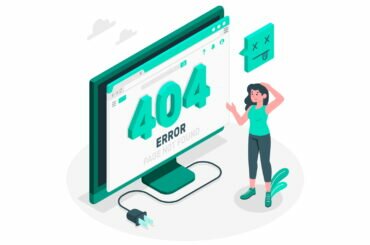Bitcoin has been the subject of controversy since its inception. Many believe that Bitcoin is completely anonymous, making it the currency of choice for criminals. While this misinformation was rampant in the early days, it still continues to be spread to this day. Here, we will give a brief overview of how this currency works and discuss whether or not Bitcoin is as anonymous as people claim it is.
About Bitcoin Transactions
Before we go into the anonymity of Bitcoin, let’s first take a look at how Bitcoin transactions work. When you create a Bitcoin wallet, you are given a public key. Think of this as your bank account. The public key is a randomly generated string of letters and numbers, and it allows you to send or receive Bitcoins. However, unlike a real bank account, it is not tied to your real-world identity.
The next element at the core of Bitcoin’s operation is the blockchain. The blockchain is essentially an online ledger that records every single Bitcoin transaction ever made. Furthermore, the blockchain is also public, meaning anyone from anywhere in the world can view the transactions made by a particular address.
This characteristic makes Bitcoin and the blockchain highly transparent and highly traceable. In addition, information written on the blockchain is highly secure and permanent. Once a record is written, it cannot be erased or altered. While these attributes may seem unsafe for financial transactions, many have found comfort in Bitcoin’s randomly generated addresses. Although these addresses are not directly linked to your identity, is it enough to make you anonymous?
How Anonymous Is Bitcoin?
Since its inception, the media has depicted Bitcoin as untraceable and anonymous. It has been portrayed over and over as a safe haven for criminal activity, from purchasing illegal drugs to money laundering. While this has made for compelling articles, the opposite is true. In fact, many criminal activities funded with Bitcoin have been shut down due to the blockchain’s transparency.
Perhaps the most famous of these incidents was the demise of the infamous online black market, Silk Road. Estimates show that over $1 billion in transactions took place in the marketplace between February 2011 and July 2013. By using Bitcoin as a means of payment, users of the site hoped to remain anonymous during illegal transactions.
However, it all came to a screeching halt when law enforcement agents linked Bitcoin blockchain transactions involving addresses found on Silk Road to those found on the website owner’s laptop. That was all it took.
Bitcoin Is Pseudonymous Not Anonymous
Long story short, Bitcoin transactions are not completely anonymous. To put it a better way, Bitcoin transactions are pseudonymous. In other words, sending and receiving Bitcoins is like writing a novel under a pseudonym.
While the blockchain records all transactions taking place at any given time, the persons behind the pseudonym (address) are not immediately known. However, if your address is ever linked to your identity, all transactions you ever made will be linked to you.
For example, if you use your Bitcoin on a website that also requires your email address, your Bitcoin address can now be linked to your email. With a little more detective work, your actual identity can be found out. Placing your Bitcoin address in a forum signature is also another way that addresses can be traced back to users.
In Bitcoin’s original whitepaper, the author suggested that users use a new address for each new transaction to avoid transactions being linked to a common owner.
Final Thoughts on the Anonymity of Bitcoin
While Bitcoin has been touted as an anonymous cryptocurrency, the fact is that the data stored on the blockchain creates a forensic trail that can reveal your entire financial history. This creates the ultimate paper trail for law enforcement, tax authorities, and other agencies.
Think of it like an email address or an online alias. How hard it is to trace your identity largely depends on what you use it for.
For example, if you use your Bitcoin address while shopping at an online retailer that takes customer identity information, your pseudonymous address will be linked to you. This means that future transactions with the same address can be linked to you. On the other hand, if you take certain steps, such as using different addresses, or connecting to the internet using TOR, then traceability becomes difficult.
It is not all bad, though. Tracing your Bitcoin transactions and identity does take some deliberate detective work. Unless you are being hunted by law enforcement, you have very little to worry about. However, if you really want to be anonymous, then there are privacy coins that specialize in hiding the identity of its users.





